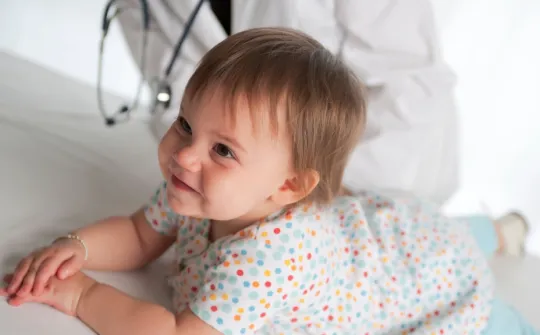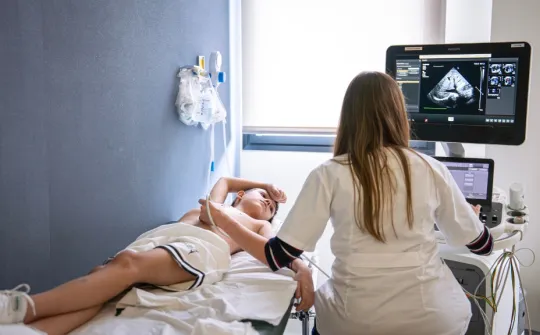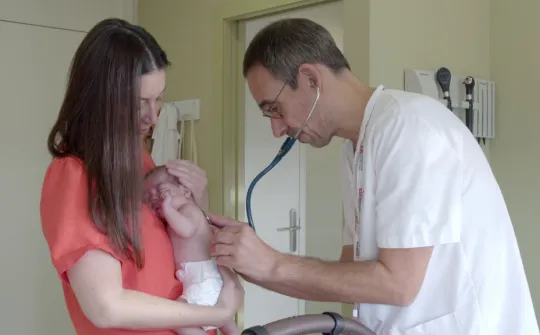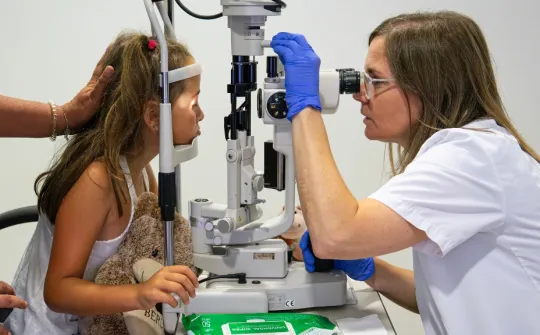SJD Barcelona Children's Hospital participates in three international congresses on childhood cancer
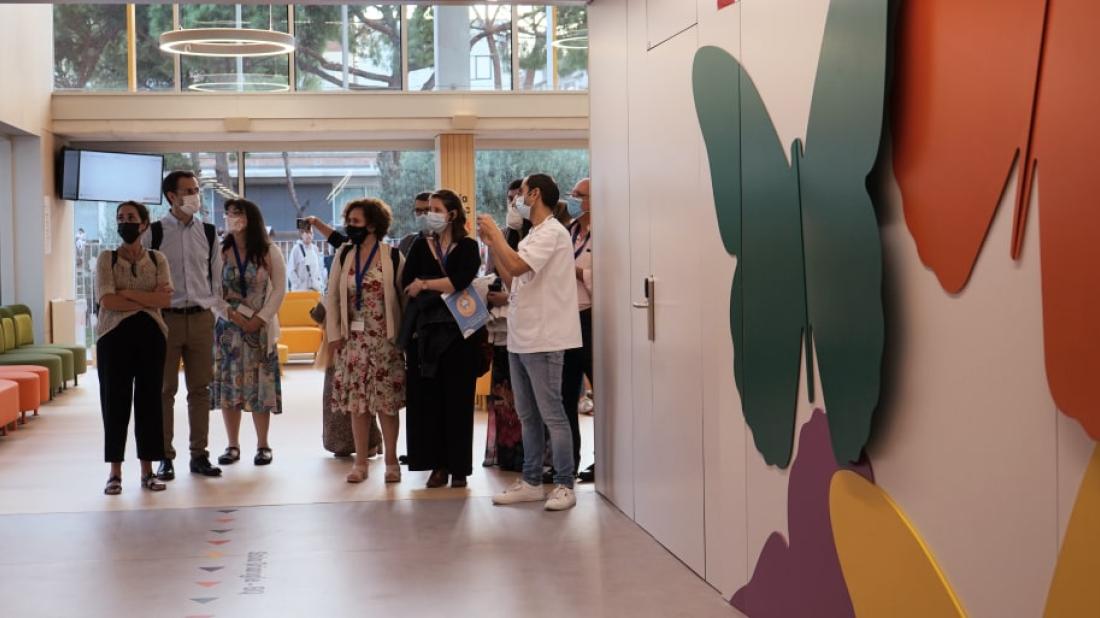
The SIOP, IPSO and SLAOP congresses are being held at the Barcelona International Convention Centre and the Pediatric Cancer Center Barcelona and analyse the latest advances in pediatric oncology.
SJD Barcelona Children's Hospital is participating in and a member of the organising committees of three congresses on pediatric oncology being held in Barcelona at practically the same time. The International Congress of the SIOP (International Society of Paediatric Oncology), in which the main advances in pediatric oncology worldwide will be discussed, the SLAOP (Latin American Society of Pediatric Oncology) congress aimed at Latin American and Spanish-speaking specialists, and the IPSO (International Society of Paediatric Surgical Oncology) meeting of specialists focusing on training, in which highly complex surgical techniques will be discussed, will all be held during the same week.
The 54th International Congress of the International Society of Paediatric Oncology has broken its attendance record in the first congress after the pandemic, which is being held in a hybrid format and brings together more than 3,000 pediatric oncologists in Barcelona over the course of three days. Through this congress, the main objective of the International Society of Paediatric Oncology is to bring together professionals from different continents to help ensure that any child or adolescent with cancer has access to the best possible treatments wherever they live. To achieve this, one of the main focuses of the meeting is to analyse the treatments available and the research being carried out in developing countries.
This is the first congress to be held in Spain since the International Society of Paediatric Oncology was founded in 1967. The meeting is usually held in a European capital followed by a North American city in alternate years. The candidacy presented in 2019 by the Spanish organising committee, led by the team from the SJD Pediatric Cancer Center Barcelona, together with other national centres, including the hospitals of Vall d'Hebron, La Fe, La Paz and the University Clinic of Navarra, received a unanimous vote. In addition, for the first time in the SIOP's history, during the congress the Chair of the SIOP will be handed over to an oncologist of Latin American origin, Dr Guillermo Chantada, head of the Outreach Programme at the SJD Pediatric Cancer Center Barcelona. This is of special significance in terms of continuing to contribute towards improving the treatment and prognosis of patients with childhood cancer in developing countries and strengthening Spain's links with Latin America.
Reducing inequalities in access to treatments and promoting research, the main objectives
Every year, 1,400 Spanish children and adolescents are diagnosed with cancer. About 80% overcome the disease, but up to a third of cases have significant sequelae as a result of treatment. In the remaining 20% of cases, the patients die because the treatment has not been effective or simply because there is no treatment to flight it. The figures, however, are not so good in developing countries, where the World Health Organization (WHO) warns that the number of children and adolescents who overcome the disease is less than 30%. That is why the WHO Global Initiative for Childhood Cancer aims to raise this figure to 60% by 2030 for the six types of cancer that most affect children: lymphoblastic leukaemia, Hodgkin's lymphoma, retinoblastoma, Wilms' tumour, Burkitt's lymphoma and low-grade glioma.
One of the main objectives of the congress is to promote research in low- and middle-income countries because, in the words of Guillermo Chantada, Chair-Elect of the SIOP, "pediatric cancer in these countries presents challenges that are not seen in Western countries". A second objective is to facilitate an exchange of knowledge and experiences among oncologists that will make it possible to increase survival rates in most countries in Asia, Africa and Latin America.
In Europe and the United States, meanwhile, oncologists warn that research must be funded to find new treatments against incurable cancers and, secondly, to make existing treatments less aggressive so that, in addition to curing the cancer, they do not leave sequelae. The fact is, however, that the amount of research that goes into pediatric cancer is a far cry from adult cancer research. In the last 20 years, fewer than 20 specific drugs have been approved for cancers affecting children and adolescents, which fall into the category of rare diseases. This poses a challenge not only for research – it makes it difficult to obtain a significant sample of patients for the start of trials – but also for the medical care of these children.
"It is extremely important that these patients can be cared for by specialist professionals and teams who have experience in treating these diseases and have treated a significant volume of patients," explains Andrés Morales, Medical Director of the SJD Pediatric Cancer Center Barcelona (PCCB), the first centre dedicated exclusively to pediatric cancer and which treats the highest number of cases in Spain. Currently, the specialist cancer centre at SJD Barcelona Children's Hospital (which operates through an agreement with the public healthcare network) receives requests from families around the world who are looking for treatment for their child.
